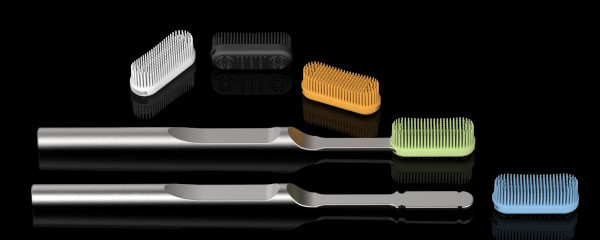With all the discussion recently of a proposed “circular economy,” in which everything supposedly is recycled again and again, it’s easy to forget the value of truly durable products. It’s also easy to forget that no such “circular economy” actually exists yet and that such an economy, even if it is ever developed to any significant extent, is still a long way off.
Therefore it is even more important to choose durability over claims of recyclability for certain kinds of products. For instance, many products made of plastic will simply will never be recycled. It may be theoretically possible to fully or partially recycle the materials, but the likelihood that this will actually happen approaches zero for most such products, and this is not likely to change any time time soon.
Toothbrushes as an Example
Three billion plastic toothbrushes are discarded each year. Nearly all of them are made in such a way that it would be impossible to recycle the materials from which they are made because different types of plastic are combined with each other such that they cannot be separated and the bristles, typically of nylon, also cannot be conveniently separated. In short, these three billion toothbrushes will never be recycled, but will end up either in a landfill, or as plastic waste on land, in waterways or in the ocean.
Bamboo Toothbrushes Are a Bad Idea
In response to the plague of plastic all over the planet, many “throwaway” products have appeared, products with claims of biodegradability. The claim is that the product, even if discarded at random, will disintegrate harmlessly into the environment.
One such product that has become popular recently is toothbrushes made of bamboo. What exactly is the supposed advantage of such products? That you can toss them in the trash after their short life and they will be transported to a landfill and not do any damage in the landfill?
Three billion bamboo toothbrushes per year would be only marginally better than three billion unrecyclable plastic toothbrushes. Also, the bristles in these bamboo toothbrushes are still made of nylon, in microplastic form. Some of the toothbrushes use nylon-4, which supposedly biodegrades, but is still a microplastic that will cause problems in the environment until it does so, if it ever does so.

There are three additional problems with bamboo toothbrushes. First, that’s a lot of bamboo that has to be grown, harvested and processed every year. Second, adding even more organic material to a landfill is a bad idea. Third, when the bamboo degrades it gives off CO2 and methane, which is also a net negative.
A Permanent Toothbrush
Soon on the market will be a much better choice: a permanent toothbrush with a stainless steel handle, and replaceable bristles made of biodegradable elastomer. The stainless steel handle, which constitutes most of the mass of the toothbrush, will last forever. Multiple generations of human beings could use that one stainless steel handle. The head containing the bristles is a single small piece that is biodegradable. You could just put it in the compost, and in a few years it would be gone.

This design had a highly successful campaign on Kickstarter, and is about to be launched commercially.
Buy Dollar Wise, Not Penny Foolish
One issue that nearly always emerges when considering truly durable products is that a durable product is initially more expensive, but typically far less expensive in the long term. A cheap plastic toothbrush costs only about $.60, and will be used for about three months. That means $2.40 per year. If you buy only the cheapest plastic toothbrushes, in ten years you will have spent only $24. But you will have thrown away 40 plastic toothbrushes. If you brush your teeth for 70 years with plastic, it costs you at least $168, and you throw away 280 plastic toothbrushes, which at best end up in a landfill.
A typical cheap bamboo toothbrush costs about $.75, so in ten years you would have spent $30. In 70 years, you would have spent $210, and sent 280 pieces of bamboo to the landfill, along with hundreds of thousands of nylon bristles.
By contrast, the stainless steel handle of the permanent toothbrush costs $18, but will last much longer than an entire lifetime. Yes, you will have to buy refills for the heads (price yet to be determined), but over the long term, you save money on the stainless steel handle, and you will have thrown away exactly nothing, sent nothing to the landfill, and no toothbrush of yours will ever end up as waste, either on land or in the ocean.
You could even include your stainless steel toothbrush handle in your will, to be passed down from generation to generation.
Toothbrushes are still only a minor example of why we should be buying for durability. We should all be applying the same principles of intelligent, responsible purchasing to cookware, clothing, furniture and more.